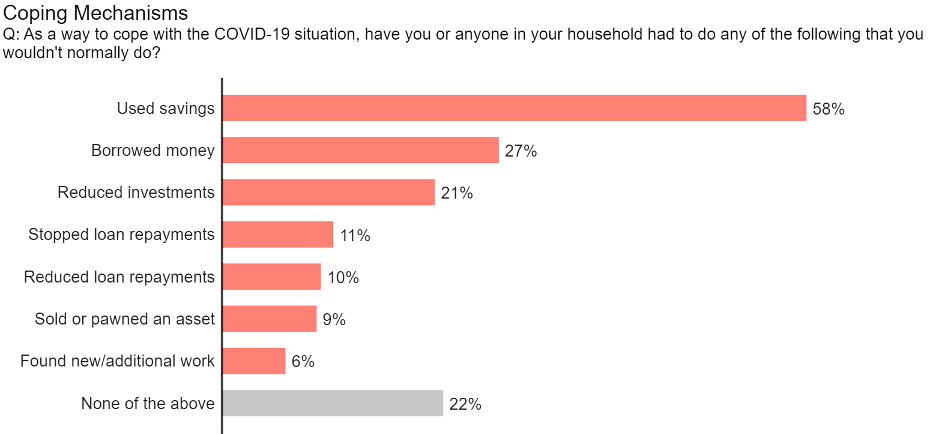This is Marina Lahowin and Tabitha Olang of The Rockefeller Foundation’s Power & Climate team. We have the pleasure of sharing our experience related to this AEA365 week’s focus on Power and Participation in International and Cross Cultural Evaluation.
When the novel Coronavirus began to spread across the world, the voices of rural communities were completely missing from the global conversation. The pandemic and accompanying lockdowns exacerbated the challenge to gather data on rural communities through traditional face-to-face approaches, leaving those most vulnerable and isolated without a voice in the global narrative. In May, our team partnered with 60_Decibels to conduct mobile-based surveys to bridge this gap, and shed light on the realities and challenges rural communities are facing during the pandemic. 60_Decibels specializes in mobile data collection, noting that cell phones are often ubiquitous in some of the most remote areas and, when combined with local researchers who intimately know the language and culture of those they are calling, can help amplify voices when conventional approaches are not possible.
This project will take place over five monthly rounds of data collection for a consortium of off-grid energy customers in India, Myanmar, Nigeria, Sierra Leone, Tanzania and Uganda. Through a combination of both randomized data collection and longitudinal data collection interviewing the same customers on a monthly basis, this project will ultimately gather responses from around 9,000 rural energy customers. By understanding the impact of the pandemic, we have been able to inform ourselves and partner energy providers on how to best support customers, as well as elevate the voices of the most vulnerable in the discussions taking place around the global pandemic.
Lessons Learned:
1. Families are struggling financially and are employing different coping mechanisms to support themselves during the pandemic. Most customers rely on savings as their main way to cope, though nearly a third have had to borrow money.
- “It’s a huge loss as my bank account is completely empty these days. I have to take help from others,” says a customer in India.

2. Although most customers are continuing to pay their electric bills on time, the difficult tradeoffs being made to pay for essential goods and services becomes clear when one third of customers reported having to reduce their food intake. 60_Decibels developed a Vulnerability Index to quantify how shocks impact a family’s economic situation comprised of 1) household poverty level prior to the pandemic, 2) perceived change in status, and 3) coping mechanisms and 4) effects on food consumption.
- In Myanmar, a customer said, “Sometimes, the electricity voltage is not sufficient with usage. We want to use the electricity and we want to buy. So we reduce food expense to buy electricity.”

Rad Resources: Interested in learning more? For more on the findings of this research, please see 60_ Decibels’ public dashboard here. This dashboard includes data from nearly 8,000+ off-grid energy customers from The Rockefeller Foundation, GOGLA, SNV, and DFID, and is updated weekly with new data.
The American Evaluation Association is celebrating International and Cross-Cultural (ICCE) TIG Week with our colleagues in the International and Cross-Cultural Topical Interest Group. The contributions all this week to aea365 come from our ICCE TIG members. Do you have questions, concerns, kudos, or content to extend this aea365 contribution? Please add them in the comments section for this post on the aea365 webpage so that we may enrich our community of practice. Would you like to submit an aea365 Tip? Please send a note of interest to aea365@eval.org. aea365 is sponsored by the American Evaluation Association and provides a Tip-a-Day by and for evaluators.
